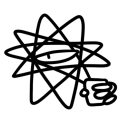Tapeworm Buddy

Tapeworm buddy
-
 chalkstump liked this · 3 years ago
chalkstump liked this · 3 years ago
More Posts from Saltybean03
Anoder ophanim
My app crashed, I don't think the symbols mean anything, the wings are screwy
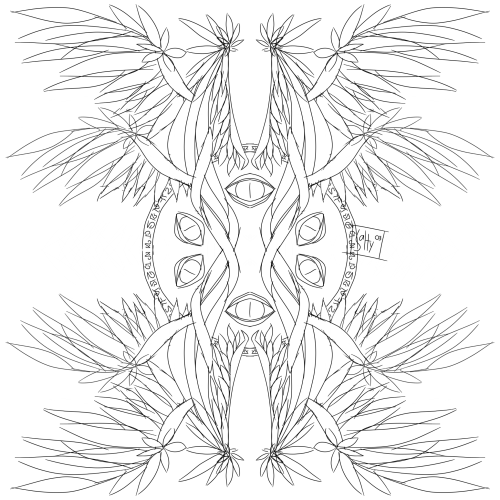
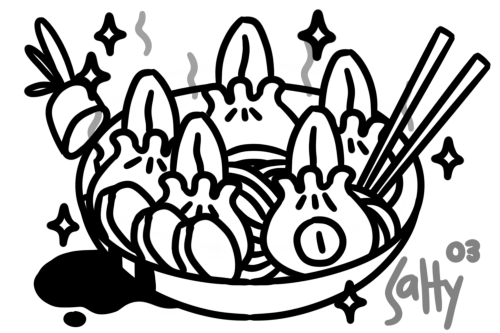
Steamed tonguelings
WARNING: LIVE CONTENTS
How to make:
Step 1: gather blood radish, bookah broth, the beard of a dragon, and tonguelings. You'll need five for this dish and they'll need to be picked wild. The broth can be milked from the three-horned bookah, and the radish can be found in the bloodwood forest. As for the beard of a dragon, about a pound of hair will do
Step 2: boil a pot of salt water and soak the dragon's beard for 15 minutes. The water will turn cloudy when the hair's been sterilized. The strands will swell and become noodles that you then wash in a strainer
Step 3: wash the blood radish and begin chopping it up into thin slices. Watch out for the blood inside, it stains clothes. Wash each slice thoroughly to clean off any remaining blood
Step 4: begin seasoning the broth with your choice of spices. Make sure you keep it warm at all times or else it'll become slimy and tasteless
Step 5: now for the tonguelings. Use a steamer if you have one, and cook them for about 10 minutes on high heat. They'll let you know when they're done when they start peeping
Step 6: boil another pot of water and pour all prepped food in, except for the tonguelings. Stir for 5 minutes on low heat then add everything to a bowl. Place the tonguelings on top, and side them with the radish slices
Tonguelings are savory creatures with really tasty flesh that sweats sauce when slapped with humidity. They're eaten live to guarantee their freshness, but you ought to eat them quickly or risk having your dinner run off O_o
A tentacley ophanim
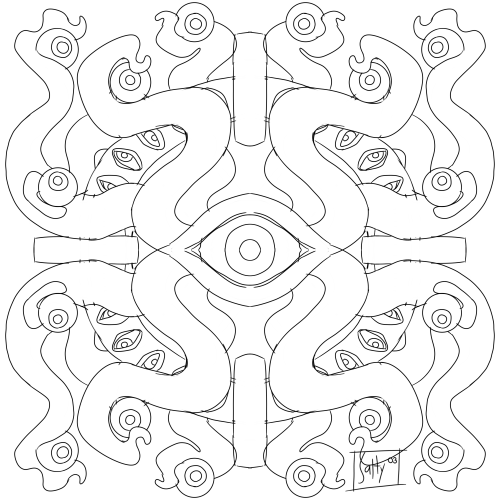
A weird joke called a unihorn
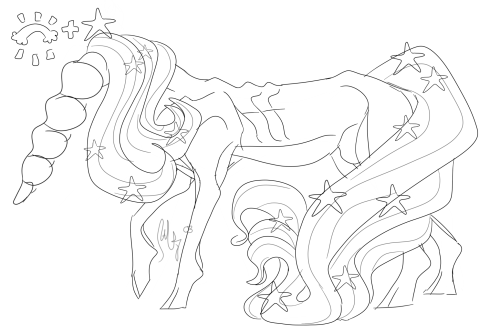
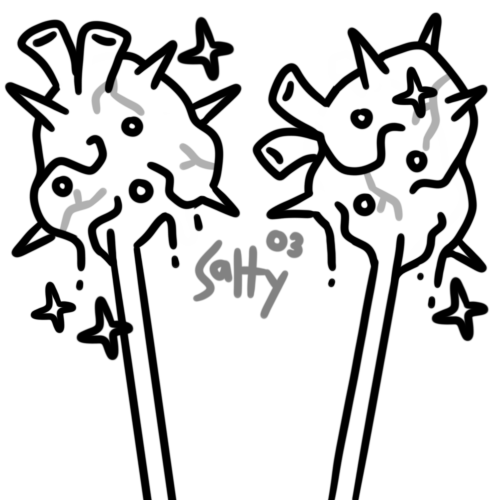
Thornheart cake pops
WARNING: POISONOUS CONTENTS
How to make:
Step 1: harvest the heart of a thornheart beast. Be wary of its poisonous spines. Make sure you use thorn-proof gloves and handle with extreme care
Step 2: wash and scrub the heart with a fresh food brush until the purple film sloughs off. Do not reuse the brush, throw it away after you're done
Step 3: cut divets into each spine so the poison can drain and soak the heart for six hours in ice cold sugar water. Once the poison has dissolved, the water should turn black
Step 4: wash off the heart, skew it, and chill it in the freezer for another six hours. It'll turn blue and sparkly when it's ready to come out
Thornheart is bitter and not for the faint of heart. It's outside will be crunchy, but the inside will be soft and doughy, and although the spines are no longer poisonous after prep, they can still stick you if you're not careful. They're edible, but you can remove them so you don't die
